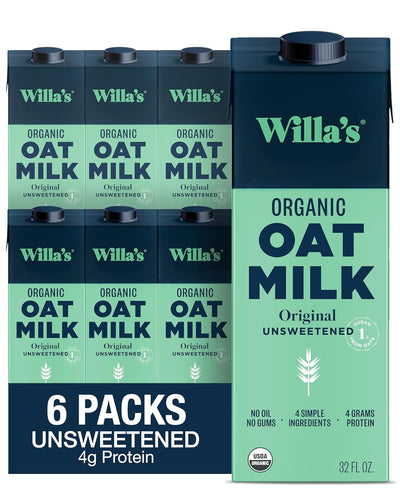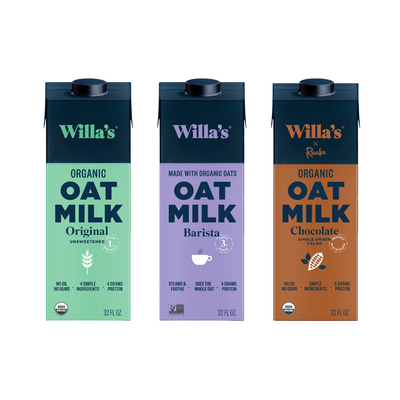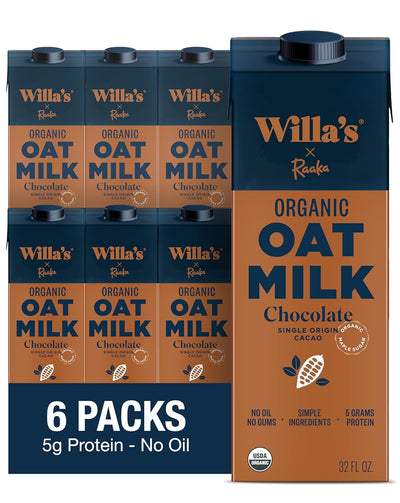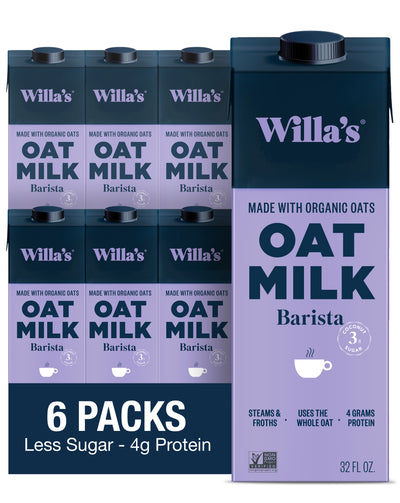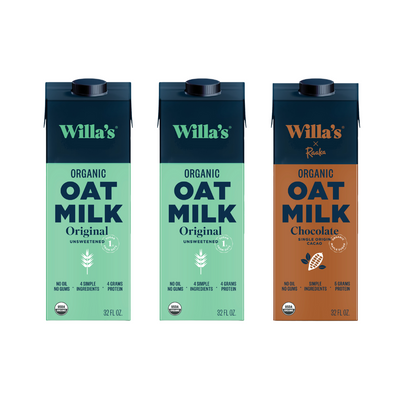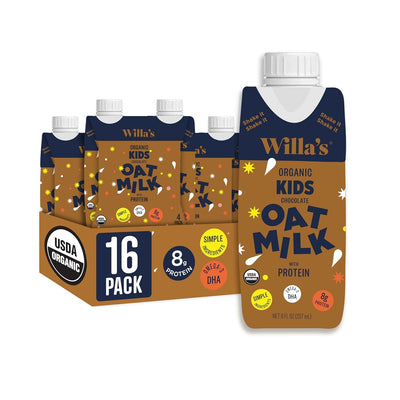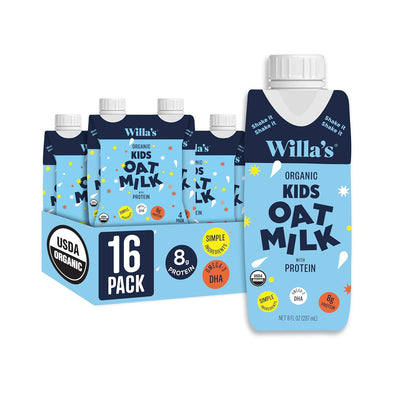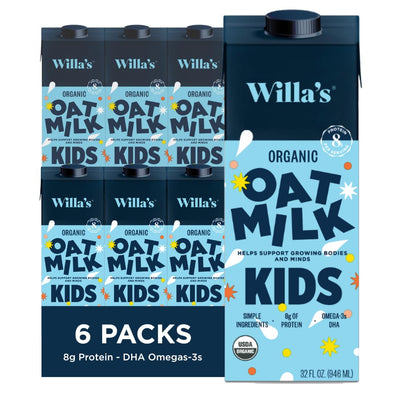Oat Milk, the Sustainable Alternative for Milk

Plant-based milks are becoming more popular every year. Weighing the upsides and downsides of all of the dairy alternatives can seem incredibly complicated.
While consuming plant-based milk, in general, is a more sustainable choice over dairy, some plant milks fare better than others when it comes to their environmental impact. And by “some” we mean just one: oat milk.
Research shows that the production of oat milk is the most sustainable of all the plant based milks. Compared to the most popular plant milks offered by coffee shops—mainly soy and almond milk—oat milk is undoubtedly the most ecologically friendly. Let’s talk about just a few of the factors that should make oat milk your go-to for coffee and how Willa’s is the most sustainable of all your options. And in our opinion, the most delicious too.
CO2
One of the clearest ways to objectively quantify the environmental impact of any product is to measure the emissions of greenhouse gases that are a result of the manufacturing of the product. Most researchers use CO2e, or “equivalent carbon dioxide” when referring to the various greenhouse gases that contribute to global warming.
In order to make a 200ml glass of soy milk, about 0.195kg of CO2e are released into the atmosphere. For almond and oat milk, the numbers are slightly lower at 0.14kg and 0.18kg respectively. According to this University of Oxford Study, dairy milk production hits the environment with three times the greenhouse gas emissions as non-dairy milks at 0.6kg of CO2e.
Some brands can leave a smaller carbon footprint depending on their sustainable practices in other areas of production, such as using eco-friendly packaging and awareness of food waste.
Food waste is one of the largest contributors to CO2, even more so than cattle. Willa’s recognizes that food waste is one of the largest contributors to CO2, even more than cattle. For this reason, Willa’s uses the whole oat, meaning you get all of the nutritional density of the grain and no part of the oat is wasted. This also means, unlike other oat milks which use highly processed oat sugar, Willa's Oat Milk is made with an entirely zero-waste process.
Willa’s also uses TetraPak packaging that removes all air so that it can be shelf stable for at least 9 months without having to use refrigerated trucks or warehouses. And of course without the use of yucky preservatives and chemicals. TetraPak is also recyclable.
Water
Almond milk may have the slightest edge over soy and oat milk when it comes to CO2e during manufacturing, but it doesn’t outweigh the fact that growing almonds requires a staggering amount of water. A single thirsty almond needs nearly three and a half gallons of water to grow. Since 80% of the world’s almonds are grown in drought-stricken California where water resources are often limited, large crops of almonds can exacerbate water shortages. Let’s not forget irrigation also contributes to CO2 emissions due to the energy required to pump water. A carton of almond milk uses 8-9 times as much water to produce as compared to oat milk, which has the smallest water footprint of the plant milks.
Land
To put it bluntly: soy is threatening the rainforest. More soy consumption means more of the Amazon becomes replaced by soy farms. By contrast, oats are a cover crop and can be easily and sustainably grown in many growing regions. Willa’s uses oats grown on farms right here in North America.
Willa’s takes a further commitment to sustainability by using only organic whole oats, which are excellent for soil health and crop rotation.

